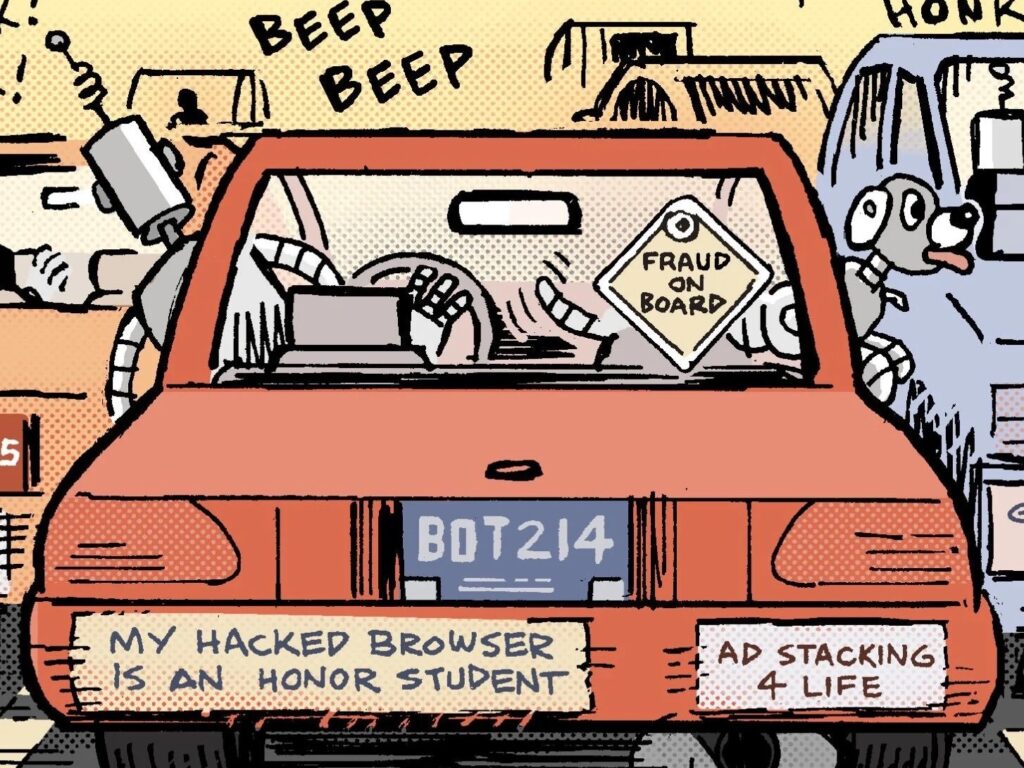The great New York Yankees player Yogi Berra is as well known for his sayings as his playing. One of his more oft-quoted phrases includes, "It’s like déjà vu all over again." Granted this comes from a person who when asked what time it was, answered, "You mean now?" Well, for those who have worked in the space since 2000, this will feel like déjà vu all over again. For the newer generation, they might have only read about the spectacular collapse that brought down giants such as Enron and unfilled promises like the $1 billion dollar startup Webvan. Regardless, if we work in the space, we work for a company that has one way or another benefited from the resurgence in online advertising. That resurgence owes much to the performance-based advertising companies who found a way around two of the critical drivers for many companies that didn’t fare well – Venture Capital / Banking Dollars and Agency-related Budgets. Here, in Part 2, we take a look at those two factors with an eye towards what differences we expect this time around.
Venture Capital / Banking Dollars
As mentioned in , the big Wall Street securities firms and banking institutions that have found themselves at the center of the bursting of the housing bubble, might not make the advertising economy go round based on their ad spends, but their capital makes the world go around in other ways, especially in terms of mergers and acquisitions. With the stock market for IPO’s in its own funk, companies wanting to exit looked to get bought. Not all buyers have hundreds of millions of dollars or even billions of dollars of cash lying around, so they rely on these firms to provide additional funds for the transactions, such as debt financing, which is scarcer with the hesitancy to lend. Funds are at the heart of the issue, and even public companies that don’t require debt financing find themselves with less money to spend. With their stock price lower, they have less capital to invest, and fewer transactions will occur. In both cases, it means the same thing, smaller deals, fewer of them, lower multiples, and diminished banking activity.
Early stage companies should see less of an impact, and in general they require less heavy investment banking and M&A support. They in turn rely more on money from venture capital. As Cnet reports, "There are still a lot of growth-industry investors with a large amount of capital, and they will find it appealing to invest in smaller companies because valuations will be lower." The venture firms have for the most part already raised and/or secured the capital needed for their funds. Where they will feel the impact is in which companies to invest. They only get their money back, and profits, when a company they fund, sells or goes public. With fewer exits, even though they have plenty of funds, they will most likely invest more carefully in order to maximize the chances that they see an exit. This leads to an anticipated shift in the deployment of their funds from early stage to later stage companies with a definitive path for exit.
Business Week summarizes the venture landscape best though by saying, "Tech companies don’t rely on debt all that much, VCs are stocked to the gills with money and institutional investors remain committed for the long term." Translation, score one for those in the online sector. That said, being in the sector doesn’t imply a job. Companies with an exposure to the financial sector (lending related, not debt offers or payday) have already trimmed their work forces with more coming at other firms. As BoomTown writes, "Internet companies are in the midst of reevaluating their troop numbers to streamline themselves for the coming few months of financial winter." It’s seen from eBay to HP, and "Costs cuts–while no growth solution, as increased revenues are–do make the bottom line look prettier." Startups and those still on their growth curve on the other hand, are still hiring, but less aggressively than in the past.
Advertising Budgets
In some ways, those who cover the Internet advertising space, like us, operate not too differently from the professional analysts. The biggest difference, and it is a big one, is that their publications can move the markets, and their recommendations carry the added weight of trying to increase stock trades for the companies that employ them. With the retirement of Jordan Rohan of RBC Capital Markets, his protégé Ross Sandler, has done an admirable job in taking over. One that hasn’t received as much attention, but who we feel has covered the changes to the overall ad landscape as we trudge our way through the economic downturn is William Morrison, of ThinkPanmmure. The title of one of his recent reports was "Entering Phase II Of The Media Recession, Contract Cancellations" in which he writes, "In our experience, media recessions typically develop in three phases. First, marketers reduce spot market activity and eliminate quarterly budget flushes. Then, marketers begin canceling "up-front" commitments and previously signed advertising contracts. Lastly, marketers begin to rationalize/reduce budgets for future years." And, "Our recent conversations with online publishers revealed a significant number of advertisers that have canceled contracts or significantly reduced commitments for the second half of 2008. The majority of industry contacts we spoke with this quarter said fundamentals weakened from 2Q to 3Q. (Second quarter to third quarter)"
Mr. Morrison adds, "While our research suggests weakness in a number of online advertising categories, including finance and travel, the auto category is likely to see the most significant cuts during the second half of 2008." His views were bolstered during last week’s ad week, where "conversations with advertisers, publishers and agencies during the conference support our view that we are in the midst of a cyclical downswing in online advertising." He adds, "While many of the early-stage companies are experiencing strong growth due to their size and innovations in the marketplace, the consensus among most of the industry participants we spoke with suggests that many of the larger players are having difficulty growing their online businesses in the current environment." As predicted, online advertising will grow, but it comes at the expense of other budgets as opposed to pure organic growth. As touched upon in Part 1, his research holds consistent with companies like eMarketer and suggests "the online advertising environment in the U.S. to remain challenging and for growth rates to decelerate at a steady pace for another four to six quarters, with accelerating growth sometime in the latter half of 2009." What is holding up well, and this definitely mirrors the past downturn is non-premium display. Those in our space can attest to the volume possible by figuring out non-premium social network inventory and learning how to buy the right pockets on the exchanges.
What About Us?
We have the following takeaways –
1) The performance space is acting like a buffer for those with great exposure to brand advertisers cutting back. Companies like Bankrate.com have taken a greater position in the cpa space with a number of acquisitions, including more than $50 million worth in the credit card space.
2) Now more than ever it is time to look towards the international market. It’s not just the currency exchange that makes sense
3) There is no ongoing cash-cow like mortgage lead gen in 2000. The sectors that make the most sense for the economy like payday and debt have their own issues and aren’t as large or overwhelmingly easy to make money like mortgage was. They don’t however rely on credit or the issuance of credit for their success, which is a positive. In other words, this downturn’s success will come from a wider array of smaller sectors and not one big one. So look for the doubles and not the home-run. Those with home run potential will require greater investment to entry and ongoing resources to hit scale (example is debt and home improvement). They will also require greater expertise in non-Internet advertising channels.
4) Arbitrage players will continue to shift from just Google to the areas of more repressed inventory – social networks and the exchanges, but the number of people who will hit it out of the park will be limited.
5) As Yogi Berra said, "It ain’t over ’til it’s over."
 Network
Network

